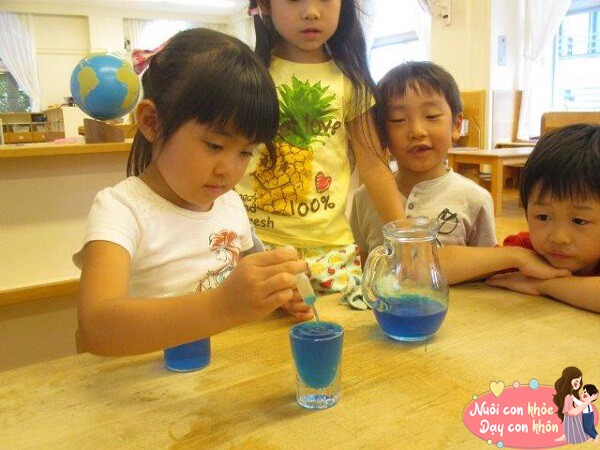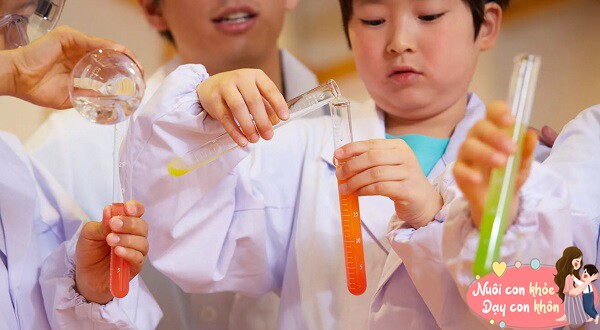While career choices are becoming increasingly diverse, many parents are starting to ask: If children do not intend to pursue science-related careers in the future, is there any real value in studying science? The answer is definitely yes.
For children, learning science is not just about accumulating knowledge, but also about cultivating comprehensive abilities and honing their thinking skills, no matter which career path they eventually choose.

Nurturing logical thinking and problem-solving abilities
The core value of science education is to nurture children’s logical thinking and problem-solving abilities. Science education is not just about allowing children to memorize facts or pile up information; it is more importantly about teaching them how to observe the world with a rigorous mindset. During the process of learning science, children will develop keen observational skills and a deeper understanding of the world around them.
They will not be satisfied with superficial knowledge but will delve deeper to discover the underlying principles and laws. This attention to detail allows them to identify problems more effectively and apply their insights to their daily lives.

Nurturing logical thinking and problem-solving abilities.
Learning science also involves a process of hypothesis formulation, experimental design, and hypothesis testing. When faced with unknown problems or phenomena, children will actively think, make predictions, and test their ideas through scientific practice. This process not only sharpens their imagination and logical thinking skills but also enhances their practical abilities and scientific spirit.
Gradually, they learn to use scientific methods to solve problems, and this ability will become an important foundation for facing various challenges in the future.

Developing analytical and critical thinking skills
In scientific experiments, children need to collect, analyze data, and draw conclusions. This process improves their data sensitivity and develops their analytical and critical thinking skills.
They learn to distill complex information into clear and concise insights. This ability is extremely important in academic research and daily life, helping them to approach problem-solving in a more rational and objective manner.

Developing analytical and critical thinking skills.

Broadening horizons and enhancing awareness
More importantly, learning science helps to broaden children’s horizons and enhance their awareness significantly. Science encompasses diverse fields, including natural, social, and humanities domains.
Through science education, children are exposed to a wider range of knowledge and understand the complexity and diversity of the world. They gain insights into the interconnections between humans and the natural environment and learn about the scientific principles underlying social phenomena.
This knowledge and understanding will better equip them to adapt to the developments and changes in modern society, providing a solid foundation for their future lives.

Stimulating curiosity and a love for learning
Additionally, learning science can stimulate children’s curiosity and foster a love for knowledge. The world of science is full of mysteries and unknowns, and each scientific discovery is a crystallization of human intelligence.
Through science education, children are continually exposed to new ideas and perspectives, igniting their curiosity and a desire to explore. This curiosity and thirst for knowledge motivate them to continue learning and developing, and it will drive them to pursue progress and innovation in their future endeavors.

Stimulating curiosity and a love for learning.

Developing teamwork and communication skills
Under the influence of science education, children also have the opportunity to develop teamwork and communication skills. In scientific experiments and project-based learning, children collaborate closely with their peers to accomplish tasks.
During this process, they learn to listen to others’ opinions, express their own thoughts, and coordinate relationships within the group. These abilities are not only important in scientific research but also fundamental for successful professionals in modern society.

Developing teamwork and communication skills.
Through this style of learning, children can develop valuable qualities that lay the foundation for their future careers and social lives. Regardless of their eventual career path, exploring science has immense value. It hones their logical thinking and problem-solving skills, broadens their horizons, stimulates curiosity, and fosters a love for learning, while also enhancing their teamwork and communication abilities.
Therefore, if possible, parents should create opportunities for their children to explore and learn freely, allowing them to develop their full potential.


































